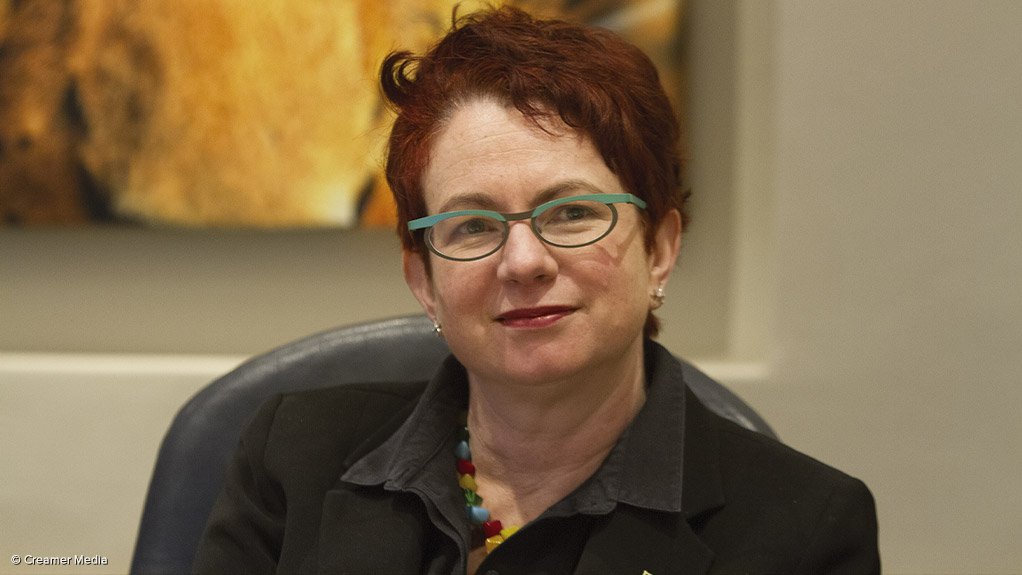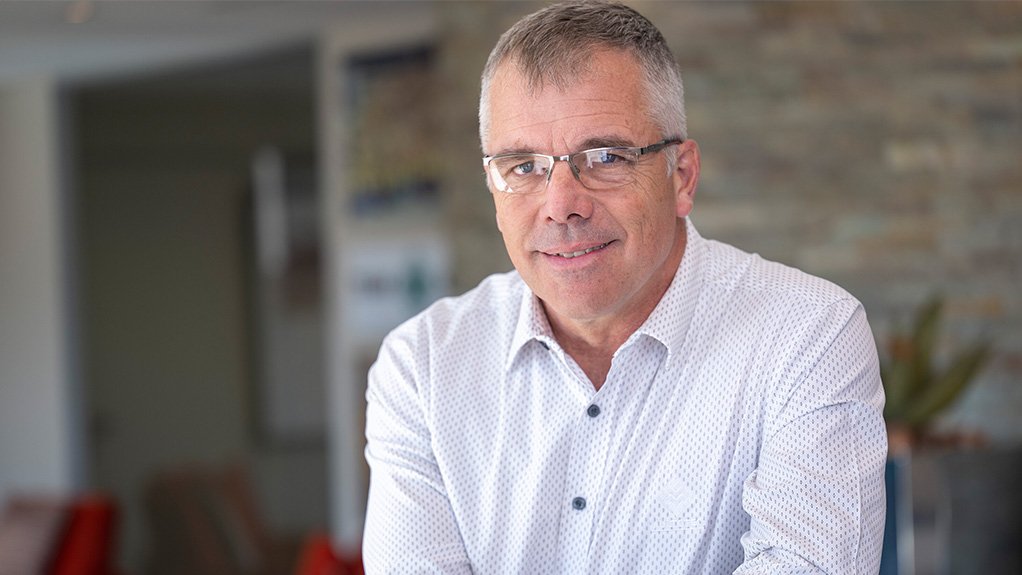AfCFTA holds promise for SA exports, but implementation roadblocks remain








PHILIPPA RODSETH Manufacturers need to be more proactive and well informed about the agreements and opportunities within the regional value chain
Photo by Creamer Media
THOMAS HOLTZ Progress will require patience and extensive efforts
ERIC BRUGGEMAN Forming partnerships with foreign countries is critical for success
Photo by Creamer Media's Donna Slater
TAFADZWA CHIBANGUZA Africa offers significant opportunities, owing to its geographic proximity and South Africa's position as the most industrialised economy
AMITH SINGH Banks are genuinely interested and willing to engage
GAYLOR MONTMASSON-CLAIR A holistic approach and regional integration strategy is important to leverage the abundant mineral resources for beneficiation and battery production
While the African Continental Free Trade Area (AfCFTA) Agreement presents a significant opportunity to access a larger market for South Africa’s exports and the local manufacturing sector, industry organisation Manufacturing Circle executive director Philippa Rodseth highlights the need for extensive work in terms of implementation.
Speaking during Creamer Media’s local manufacturing-focused webinar, she mentioned ongoing discussions and negotiations relating to trade bloc and tariff agreements as some of the challenges that needed to be addressed.
She also emphasised the importance of addressing nontariff barriers and logistics challenges to effectively exploit the opportunities presented by the AfCFTA.
“From an industry perspective, manufacturers need to be more proactive and well informed about the agreements and opportunities within the regional value chain,” Rodseth noted, stressing the need to understand South Africa’s trade interests, both in terms of exporting products and defending against imports.
To do this, she suggested that South Africa’s manufacturing industry “work towards providing valuable insights to South African trade negotiators and find ways to address nontariff barriers”.
Implementation of specifically the Steel Master Plan, which aimed to identify pilot projects and project opportunities where South African expertise and funding could be deployed to open new markets, was one such area that could prove extremely beneficial, Rodseth said.
However, extensive efforts, collaboration with government counterparts and a “deep understanding” of the various agreements and trade blocs were still needed to effectively capitalise on the opportunities presented by the AfCFTA Agreement, she warned.
She highlighted mineral processing company Multotec, a Manufacturing Circle member, which has explored accessing neighbouring countries for exports, owing to easier logistics.
Multotec CEO Thomas Holtz expressed support for the AfCFTA and drew a comparison with the European model where European countries primarily trade with one another. He believes that such regional trade growth to have been beneficial and advocated for similar developments in Africa.
“However, progress will require patience and extensive efforts, owing to existing obstacles and countervailing forces,” he noted, adding that implementation of the AfCFTA Agreement would be in “everyone’s best interest”.
From a manufacturer’s perspective, he acknowledged that while there may be hurdles and challenges, “as long as they are applied equally to everyone, the playing field will be the same for all participants”.
Although it would take time, the impact on businesses across countries would not be significantly different, he said.
In theory, the AfCFTA means that there is a need to create a level playing field, streamline border processes, reduce duties, and improve infrastructure to facilitate faster and more cost-effective movement of goods.
“Currently, travel within Africa is expensive and cumbersome, which makes it challenging to transport goods efficiently. With a growing market of one-billion people with growing lifestyle requirements, as well as the demand for critical minerals, mitigating these challenges is crucial for success.”
South African Capital Equipment Export Council chairperson Eric Bruggeman concurred, highlighting the importance of forming partnerships with foreign countries.
Steel and Engineering Industries Federation of Southern Africa (Seifsa) COO Tafadzwa Chibanguza, meanwhile, agreed that significant opportunity was presented by Africa as a market.
However, he emphasised that the quality of demand had weak spots, owing to fiscal vulnerabilities in certain sectors. Despite considering Africa an important market, he believes these vulnerabilities would impact on the overall demand quality on the continent.
He mentioned a “structural shift” in the South African steel and engineering sector, noting that, prior to 2008, Europe was the largest export market. However, after the 2008 global financial crisis, Africa surpassed Europe to become the largest export market for the sector. Currently, 40% of the sector’s output is exported, with 40% of that going to Africa.
“Africa offers significant opportunities, owing to its geographic proximity and South Africa’s position as the most industrialised economy. However, the sector has experienced a multiyear structural decline since 2008, with a compound annual decline of 1.3%. This decline is [attributable] to various factors, including the quality of demand from African countries,” Chibanguza acknowledged.
Research organisation Trade and Industrial Policy Strategies (TIPS) senior economist Gaylor Montmasson-Clair, meanwhile, expressed optimism about the potential opportunities driven by renewable energy but noted that “many of these opportunities have yet to materialise”.
He explained that while there was significant need, and latent demand, for renewable energy, its actual realisation remained uncertain. Some countries, such as Morocco and Egypt, are actively pursuing renewable- energy plans, but progress in many other countries is slow.
Montmasson-Clair highlighted potential opportunities in regional integration, specifically in the development of lithium-ion batteries, for which minerals across the African continent were available.
“A holistic approach and regional integration strategy is important to leverage the abundant mineral resources for beneficiation and battery production,” he emphasised, suggesting that partnerships with key demand drivers such as the automotive and energy industries were crucial for building value chains from the bottom up (minerals) and top down (demand drivers).
There are significant opportunities at both the national and continental levels, he added, though he stressed the importance of being concrete, seizing opportunities, and tapping into the prospects of the AfCFTA and other regional integration initiatives.
Funding
Funding is always a crucial consideration for the growth of any sector, industry or business, and it was especially essential to understand the business case and carefully evaluate funding options from a banking perspective, said financial services provider Nedbank manufacturing national manager Amith Singh.
“Banks typically assess the business and its viability before providing funding. Supporting businesses, especially in the manufacturing sector, is a strategic priority for Nedbank. While preferential rates may not be feasible, we can contribute to the sector by ensuring integrity, understanding its nuances, and recognising the interconnections within the value chain.”
Singh explained that when it came to funding small and medium-sized enterprises, “banks are genuinely interested and willing to engage”.
However, he stressed that, while clients sometimes misunderstood the reasons why funding may not have been approved or granted as expected, “it’s important to remember that financial institutions make money by funding successful businesses rather than writing off losses”.
Therefore, a solid and well-funded business case is crucial.
“As a bank, the goal is to partner with clients to understand their growth plans and provide support for growth. So, it is all hands to the till with an experienced financial adviser committed to doing good because it’s bigger than just the business, with real positive outcomes, more so for the economy, and importantly, society as well,” Singh said.
From a broader manufacturing perspective, Montmasson-Clair noted that the current manufacturing situation presented “a challenging equation to solve”.
“The obstacles and challenges facing the industry need to be addressed to achieve the desired growth, economic development and employment creation. This is a widely recognised issue, often referred to as the ‘elephant in the room’,” he said.
However, he added that South Africa’s manufacturing industries had proven to be resilient over the past 15 years, despite the severity of the challenges.
One particular concern that deeply worried Montmasson-Clair was the emergence of border carbon taxes, which he said was now “approaching reality”.
“With the European Union (EU) planning to implement a carbon tax at its borders starting in October of this year and considering that about 19% of South Africa’s exports go to the EU, this carbon tax will significantly impact market access for exporters who have not decarbonised their electricity supply and manufacturing processes,” he said.
Given that South Africa is one of the most carbon-intensive economies globally, Montmasson-Clair warned that the local manufacturing industry faced a “tremendous challenge”.
Additionally, once the EU established its scheme, other regions such as the UK, Japan, the US, and Canada were likely to follow suit, which he said would “eventually affect global trade dynamics”.
For exporters today, this carbon tax will become a significant constraint going forward, he warned.
However, Montmasson-Clair noted that there was a flip side to this challenge.
“If companies can successfully decarbonise and demonstrate their commitment to sustainability, it opens opportunities and provides a clear advantage in accessing these markets. Therefore, the ability to decarbonise will reshape trade dynamics and present potential advantages in the global market. The key question remains: Can we, as a global community, rise to the challenge in the long run?” he concluded.
Article Enquiry
Email Article
Save Article
Feedback
To advertise email advertising@creamermedia.co.za or click here
Press Office
Announcements
What's On
Subscribe to improve your user experience...
Option 1 (equivalent of R125 a month):
Receive a weekly copy of Creamer Media's Engineering News & Mining Weekly magazine
(print copy for those in South Africa and e-magazine for those outside of South Africa)
Receive daily email newsletters
Access to full search results
Access archive of magazine back copies
Access to Projects in Progress
Access to ONE Research Report of your choice in PDF format
Option 2 (equivalent of R375 a month):
All benefits from Option 1
PLUS
Access to Creamer Media's Research Channel Africa for ALL Research Reports, in PDF format, on various industrial and mining sectors
including Electricity; Water; Energy Transition; Hydrogen; Roads, Rail and Ports; Coal; Gold; Platinum; Battery Metals; etc.
Already a subscriber?
Forgotten your password?
Receive weekly copy of Creamer Media's Engineering News & Mining Weekly magazine (print copy for those in South Africa and e-magazine for those outside of South Africa)
➕
Recieve daily email newsletters
➕
Access to full search results
➕
Access archive of magazine back copies
➕
Access to Projects in Progress
➕
Access to ONE Research Report of your choice in PDF format
RESEARCH CHANNEL AFRICA
R4500 (equivalent of R375 a month)
SUBSCRIBEAll benefits from Option 1
➕
Access to Creamer Media's Research Channel Africa for ALL Research Reports on various industrial and mining sectors, in PDF format, including on:
Electricity
➕
Water
➕
Energy Transition
➕
Hydrogen
➕
Roads, Rail and Ports
➕
Coal
➕
Gold
➕
Platinum
➕
Battery Metals
➕
etc.
Receive all benefits from Option 1 or Option 2 delivered to numerous people at your company
➕
Multiple User names and Passwords for simultaneous log-ins
➕
Intranet integration access to all in your organisation

























